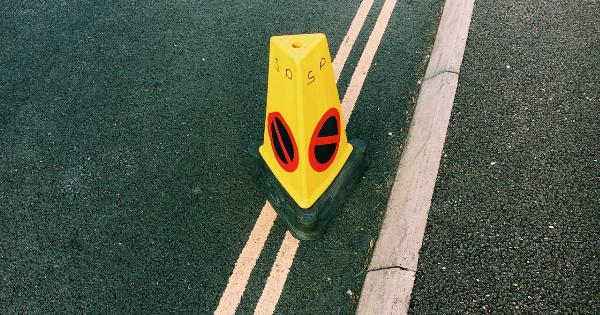Experiencing muscle cramps during the night can be a distressing and disruptive experience. It’s not uncommon to wake up suddenly with a sharp and intense pain in a muscle, leaving you startled and uncomfortable.
If you’re wondering why you’re experiencing these nighttime muscle cramps and how to alleviate them, read on for some possible explanations and solutions.
1. Dehydration
One of the most common causes of muscle cramps, both during the day and at night, is dehydration.
When your body lacks sufficient fluids, it can lead to imbalances in electrolytes like sodium, potassium, and magnesium, affecting muscle function and causing cramps. To prevent dehydration, ensure you’re drinking enough water throughout the day and consider replenishing electrolytes with natural sources like coconut water or consuming sports drinks in moderation.
2. Nutritional Imbalances
Another factor that can contribute to nighttime muscle cramps is the deficiency of certain vitamins and minerals. Low levels of potassium, calcium, and magnesium can increase the likelihood of experiencing muscle cramps.
Including foods rich in these nutrients in your diet, such as bananas (potassium), dairy products (calcium), and green leafy vegetables (magnesium), can help reduce muscle cramps.
3. Muscle Fatigue
Engaging in strenuous physical activities or exercising without proper warm-up or cooldown routines can lead to muscle fatigue. Overworked and tired muscles are more prone to cramping.
It’s crucial to prioritize adequate rest and recovery after exercise sessions, including stretching exercises and massage techniques to relax the muscles and reduce the risk of painful cramps during sleep.
4. Nerve Compression
In some cases, muscle cramps at night can be due to nerve compression or irritation. Conditions like sciatica, where the sciatic nerve is compressed, can cause not only leg pain but also muscle cramps during sleep.
Consulting with a healthcare professional, such as a chiropractor or physical therapist, can help identify and address any potential nerve-related issues causing your muscle cramps.
5. Pregnancy
Women who are pregnant often experience muscle cramps, particularly during the later stages of pregnancy. The growing weight of the fetus and changes in the body’s hormone levels can lead to muscle discomfort and cramping.
Gentle exercises, warm baths, applying heat or cold packs, and wearing proper footwear can help alleviate pregnancy-related muscle cramps.
6. Medications and Medical Conditions
Certain medications, such as diuretics and statins, as well as medical conditions like thyroid disorders, diabetes, and liver disease, can increase the risk of muscle cramps.
If you suspect your medications or an underlying health issue are the root cause of your nighttime muscle cramps, it’s important to consult with your healthcare provider for proper evaluation and guidance.
7. Restless Leg Syndrome
Restless Leg Syndrome (RLS) is a condition characterized by an irresistible urge to move the legs, often accompanied by uncomfortable sensations.
Individuals with RLS may experience worsening symptoms at night, leading to disruptive sleep and muscle cramps. Managing RLS with lifestyle changes, such as regular exercise, avoiding stimulating substances like caffeine, and practicing relaxation techniques, can help reduce both the urge to move the legs and associated muscle cramps.
8. Age-related Changes
As we age, our muscles tend to lose strength and flexibility. Age-related changes, such as muscle degeneration and decreased blood circulation, may contribute to nocturnal muscle cramps.
Regular gentle exercise, maintaining a healthy diet, and staying hydrated can aid in minimizing muscle cramps associated with aging.
9. Cold Temperatures
Sleeping in a cold environment or exposing your muscles to low temperatures can cause muscle cramps at night. Cold temperatures can restrict blood flow and lead to muscle stiffness and spasms.
Ensuring your sleeping space is adequately warm and utilizing warm blankets or heating pads can help prevent muscle cramps caused by cold temperatures.
10. Stress and Anxiety
Chronic stress and anxiety can contribute to muscle tension and cramping, particularly when trying to relax and sleep.
Incorporating stress reduction techniques such as mindful breathing exercises, meditation, and engaging in activities that promote relaxation and emotional well-being can be beneficial in reducing nighttime muscle cramps.
Conclusion
Experiencing nighttime muscle cramps can be a sign of various underlying factors, including dehydration, nutritional imbalances, muscle fatigue, nerve compression, pregnancy, medications, medical conditions, restless leg syndrome, age-related changes, cold temperatures, or stress and anxiety. Identifying the root cause of your muscle cramps is crucial in finding appropriate remedies and preventive measures.
Making lifestyle adjustments, such as staying hydrated, eating a balanced diet, exercising regularly, and managing stress levels, can help reduce the occurrence of nighttime muscle cramps, providing you with a more pleasant and uninterrupted sleep.




























